I am quite stuck.
I have a set of data looking like this:

I have a date and 0 is the number of baggage for that specific time interval.
I would like to create a 30 minute forward looking rolling time window, and for each time period I need the flight name within this time window along with the number of baggage.
I want the output to be in a dictionary or data frame where keys is the time period.
I have the following code where I tried some different things. But I can't get the result I want. And the following code is not forward looking.
# rolling sum
df_temp = df_conflict[['sta+time_to_infeed_left',0]].rolling('1800s', on='sta+time_to_infeed_left',min_periods=0).sum().reset_index()
df_temp.sort_values('sta+time_to_infeed_left').head(45)
Is this something you can help with? :-)
Example of data
ArrivalFlightName sta sta+time_to_infeed_left sta+time_to_infeed_right idx 0
18 Flightname402 2019-12-09 20:00:00 2019-12-09 20:01:05.663474700 2019-12-09 20:03:55.006119960 21 1
24 Flightname411 2019-12-10 08:20:00 2019-12-10 08:22:28.606811160 2019-12-10 08:25:00.669594660 27 8
11 Flightname376 2019-12-10 09:25:00 2019-12-10 09:27:26.878824960 2019-12-10 09:30:16.221470220 14 1
19 Flightname404 2019-12-10 10:10:00 2019-12-10 10:12:00.095039220 2019-12-10 10:14:49.437684480 22 1
5 Flightname362 2019-12-10 10:10:00 2019-12-10 10:12:36.382748940 2019-12-10 10:15:25.725394200 8 3
2 Flightname349 2019-12-10 10:15:00 2019-12-10 10:17:05.278997760 2019-12-10 10:19:54.621643020 3 4
8 Flightname368 2019-12-10 10:30:00 2019-12-10 10:32:19.966880280 2019-12-10 10:35:09.309525540 11 1
23 Flightname410 2019-12-10 11:20:00 2019-12-10 11:22:26.878824960 2019-12-10 11:25:16.221470220 26 3
17 Flightname401 2019-12-10 11:55:00 2019-12-10 11:56:05.663474700 2019-12-10 11:58:55.006119960 20 19
15 Flightname391 2019-12-10 12:20:00 2019-12-10 12:21:21.215350260 2019-12-10 12:21:36.767225880 18 10
4 Flightname359 2019-12-10 12:40:00 2019-12-10 12:42:26.878824960 2019-12-10 12:45:16.221470220 7 2
7 Flightname364 2019-12-10 13:00:00 2019-12-10 13:02:36.382748940 2019-12-10 13:05:25.725394200 10
Example of output dictionary. Where the the flightindex's that are in several periods are flights that are in the rolling time window.
{'period_1': {'Flightname idx': [177, 181], 'Baggage': [103, 87]},
'period_2': {'Flightname idx': [177, 102, 115, 164],
'Baggage': [103, 59, 16, 8]},
'period_3': {'Flightname idx': [164, 173, 174], 'Baggage': [27, 50, 8]},
'period_4': {'Flightname idx': [70, 77, 118], 'Baggage': [19, 3, 24]},
'period_5': {'Flightname idx': [70, 98], 'Baggage': [19, 4]},